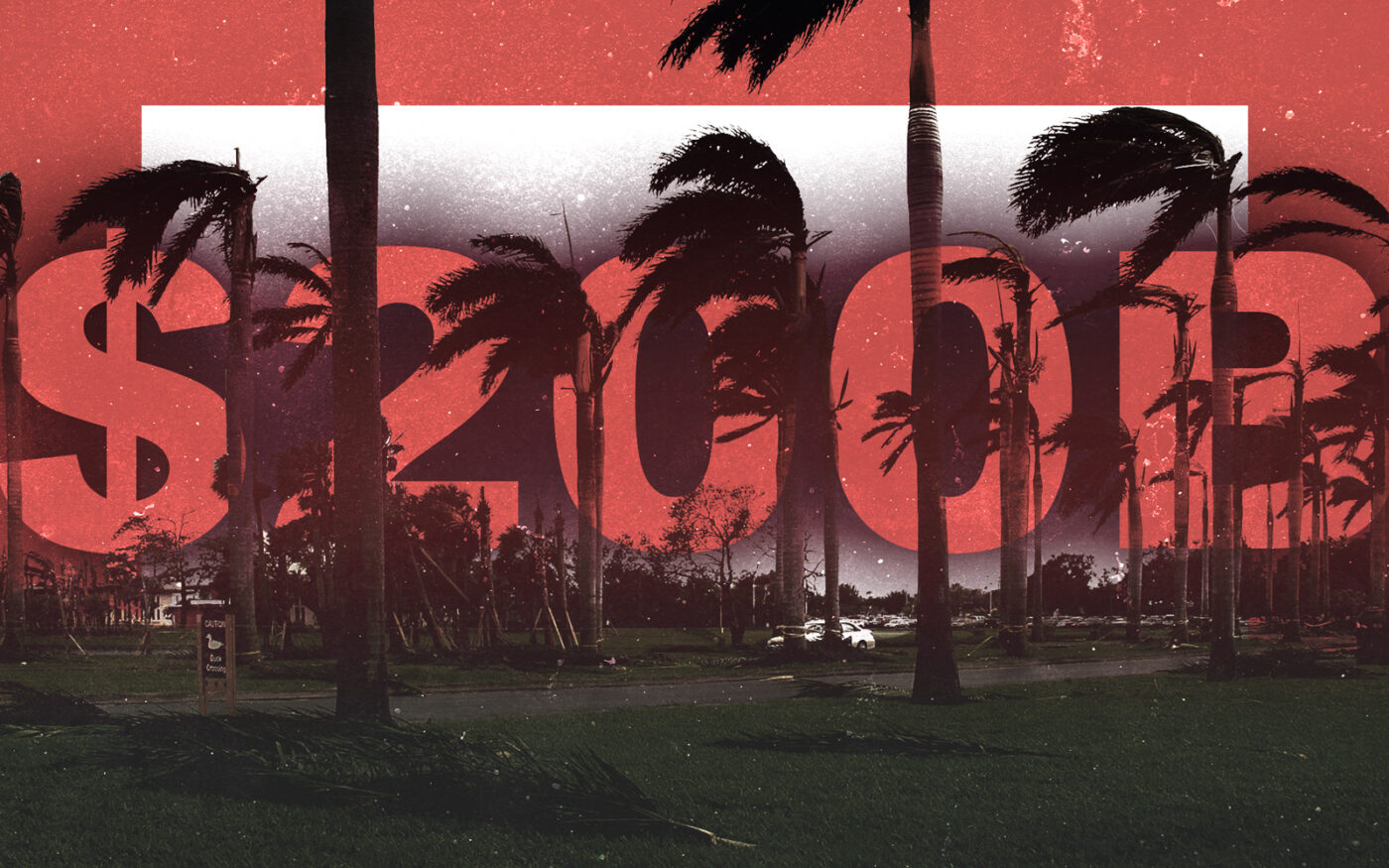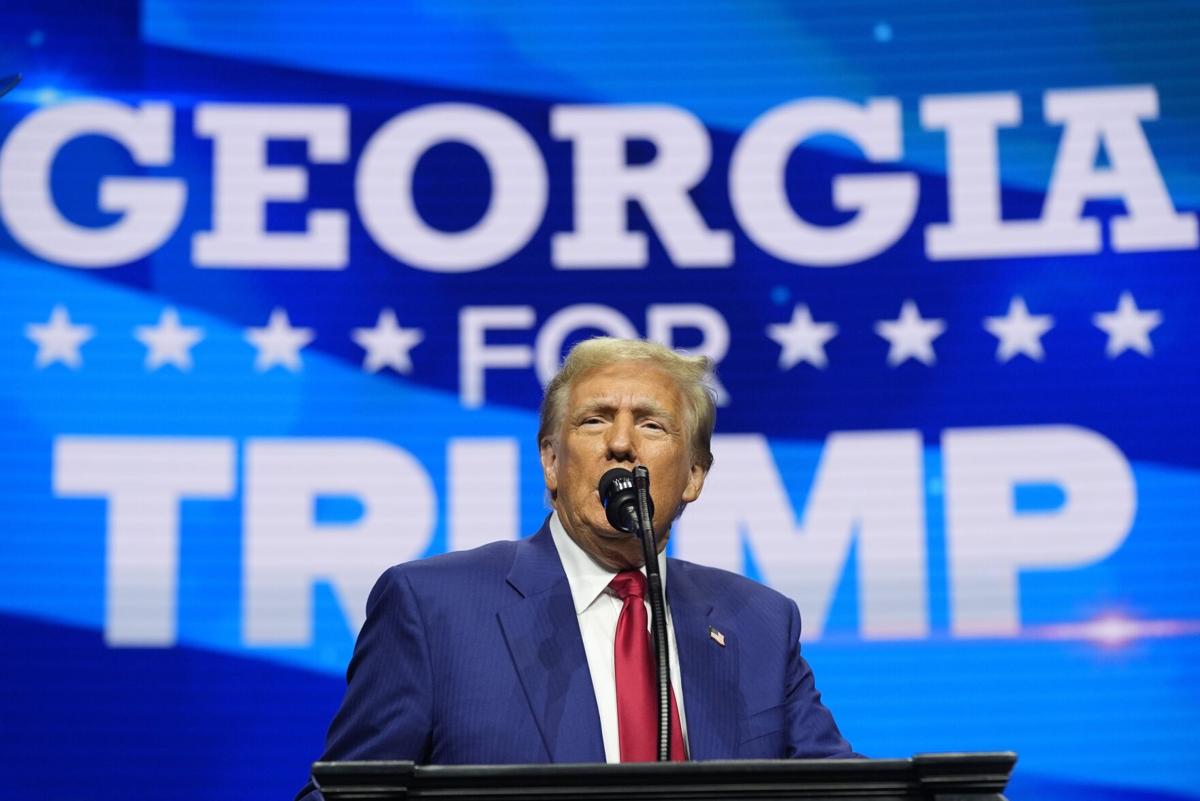
US ‘Hurricane Politics’: Beyond a Disaster
(China) on 13 October 2024
by Li Hao (link to original)
Twice within one month, two hurricanes hit back to back, highlighting the dangerous and relentless nature of this year’s U.S. storm season. However, the slow progress of rescue work in affected areas, the hardship and helplessness of those impacted, and opposing politicians exploiting the situation to attack each other have made people see a more ruthless and dangerous side to a natural disaster that has unfortunately coincided with the U.S. election season.
‘I Feel Forgotten’
On Sept. 26, Category 4 Hurricane Helene made landfall in Florida, then swept north through North Carolina, Georgia and other states. It caused flash floods and mudslides across the southeastern U.S., resulting in more than 236 deaths and becoming the hurricane with the highest death toll in the continental United States since Hurricane Katrina in 2005.
While rescue work in the disaster area progressed slowly, leaving much debris still to be cleared, on the night of Oct. 9, Hurricane Milton, a Category 3 storm, hit the west central coast of Florida. The hurricane has killed at least 17 deaths in the state and Florida Gov. Ron DeSantis said the number of casualties may rise.
Milton's arrival worsened the situation in some areas already impacted by fallen trees, broken bridges, destroyed homes and widespread power and water outages.
After the hurricanes hit, the Biden administration, as in previous years, declared a major disaster in the affected states and authorized the Department of Homeland Security and the Federal Emergency Management Agency to coordinate disaster relief work and provide emergency assistance. However, aid from both federal and local governments has been delayed, leading to the slow progress of relief work in the affected areas. With government instructions sometimes calling for immediate evacuation while in other moments ordering people to shelter in place, affected communities had to conduct their own rescue efforts. Many victims lamented that they felt forgotten.
The government's slow response and poor handling have been criticized and provided fresh fodder for politicians locked in partisan battles in the run-up to the U.S. election. According to The Hill website, the two devastating hurricanes could disrupt voting in key swing states such as Florida, North Carolina and Georgia and have triggered heated exchanges between political leaders with less than a month to go before the election.
One article notes that U.S. Vice President and Democratic presidential candidate Kamala Harris has accused Florida’s Republican Gov. DeSantis of “political gamesmanship” by ignoring her phone calls. DeSantis angrily responded that Harris had never shown any interest in previous Florida disasters and that her current concern was just for show before the election.
Meanwhile, Republican presidential candidate and former President Donald Trump and his supporters took the opportunity to attack Biden and Harris for spending all their money on foreign military aid and helping iimmigrants in this country illegally. They claimed this has left FEMA extremely underfunded and that the administration has deliberately failed to help disaster areas where Republican voters are concentrated.
Harris called Trump's comments irresponsible and callous, saying such rhetoric does not help disaster victims. FEMA Administrator Deanne Criswell’s said, “It’s really a shame that we’re putting politics ahead of helping people.”
Manipulating Disaster Politics Is an Integral Part of US Presidential Elections
The annual hurricane season is a regular event in the United States. Between July and September this year, Hurricanes Beryl, Debby and Francine made landfall in the U.S., bringing extreme rainfall and flooding to many parts of the country and causing casualties and property damage.
In theory, the U.S. government should be adequately prepared, but from the derailment of a toxic train to the collapse of residential buildings in Florida, from Maui fires to increasingly frequent extreme weather, the U.S. government at all levels is indifferent to and contemptuous of protecting people's lives and property. Slow and chaotic rescue operations are all too common, causing secondary damage to those people affected. As USA Today put it, in the U.S., the manipulation of disaster politics is nothing new.
The Washington Post reported that the successive hurricanes not only challenge the U.S. government's ability to deliver a comprehensive response, but also test the country’s political fabric. As voters prepare to go to the polls, attacks by the two parties only amplify the stark political divisions in the United States.
In reality, a major reason why FEMA is overwhelmed by two hurricanes is that it is running out of money. So far this month, the agency has spent about $9 billion on disaster relief. The Disaster Relief Fund now has just $11 billion left. Officials say that, in August, the agency suspended all other obligations for ongoing disaster recovery programs in order to provide disaster relief funding for the impact of Hurricanes Helene and Milton. Earlier this month, U.S. Department of Homeland Security Secretary Alejandro Mayorkas said the current government budget won’t last through the hurricane season, which runs from June 1 to Nov. 30.
A think tank expert has noted that domestic disasters are not as much of a priority concern for politicians when compared to U.S. military ambitions and foreign interventions. They observed that, unlike events in the Middle East 6,000 miles away from the United States, the crisis in the southern Appalachians (the area hit by Hurricane Helene) did not even make the front page of The New York Times, the Washington Post or the online version of The Wall Street Journal, while the official response to the disaster has been relatively limited.
The experts said that although the U.S. deployed more than 6,700 members of the National Guard to the disaster area, the United States has 27,000 National Guard members stationed overseas. Hurricane Helene caused huge damage, but the federal government has only allocated $20 million to disaster relief, less than 0.25% of the recent $8.7 billion military aid package it provided to Israel. The U.S. agencies at the front lines when it comes to disaster response are severely underfunded when compared to the U.S. military.
The experts put it bluntly: the most alarming aspect of U.S. authorities neglecting hurricane disasters is that it will lead to more disasters. “If the establishment continues to prioritize foreign wars over the lives of its own citizens, then it will fail that test.”


